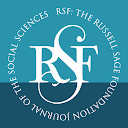[We have the following Call for Articles from RSF: The Russell Sage Foundation Journal of the Social
Sciences. DRE]
Black Reparations: Insights from the Social Sciences. Edited by William Darity Jr., Duke University; Daina Ramey Berry, University of Texas at Austin; Thomas Craemer, University of Connecticut; Dania Frank Francis, University of Massachusetts, Boston
Since the failed promise of the provision of 40-acre land grants to the formerly enslaved in the immediate aftermath of the Civil War as restitution for their years of bondage, reparations for Black Americans has lived off-stage from the center of American political discourse—until now. In 2019, during the Democratic Party's primary race for the 2020 presidential election, candidates actually invoked the term "reparations," previously verboten in credible policy conversations. While some Democratic candidates endorsed direct cash reparations, other candidates took the safer route of expressing some support for HR 40, legislation to establish a study commission for black reparations that had lain fallow in the U.S. House of Representatives for over 30 years since it was introduced by the late Rep. John Conyers (D-Michigan) in 1989.
In 2000, a national survey conducted by University of Chicago scholars Michael Dawson and Rovana Popoff, found that only 4 percent of white Americans supported reparations in the form of monetary payments. A PRRI survey in 2020 found that percentage was closer to 20 percent. By early April 2021, a University of Massachusetts at Amherst research team reported that the share had risen to nearly 30 percent. Moreover, a number of cities and two states, California and New York, have activated initiatives to execute or develop what they call "reparations" plans.
For this issue of RSF, we solicit empirically grounded papers from scholars in all of social science disciplines, including history and public health. We encourage contributions from across the ideological spectrum, especially on such topics as eligibility for reparations; long-term impacts of racial gaps on wealth; and potential unintended consequences of a black reparations plan.Please click here for a full description of the topics covered in this call for articles.
Anticipated Timeline. Prospective contributors should submit a CV and an abstract (up to two pages in length, single or double spaced) of their study along with up to two pages of supporting material (e.g., tables, figures, pictures, references that don't fit on the proposal pages, etc.) no later than 5 PM EST on July 15, 2022 to [grant portal.]
NOTE that if you wish to submit an abstract and do not yet have an account with us, it can take up to 48 hours to get credentials, so please start your application at least two days before the deadline. All submissions must be original work that has not been previously published in part or in full. Only abstracts submitted here will be considered. Each paper will receive a $1,000 honorarium when the issue is published. All questions regarding this issue should be directed to Suzanne Nichols, Director of Publications, at journal@rsage.org and not to the email addresses of the editors of the issue.
A conference will take place at the Russell Sage Foundation in New York City on April 21, 2023. The selected contributors will gather for a one-day workshop to present draft papers (due a month prior to the conference on 3/24/23) and receive feedback from the other contributors and editors. Travel costs, food, and lodging for one author per paper will be covered by the foundation. Papers will be circulated before the conference. After the conference, the authors will submit their revised drafts by 7/14/23. The papers will then be sent out to three additional scholars for formal peer review. Having received feedback from reviewers and the RSF board, authors will revise their papers by 10/4/23. The full and final issue will be published in the June of 2024. Papers will be published open access on the RSF website as well as in several digital repositories, including JSTOR and UPCC/Muse.
Please click here for a full description of the topics covered in this call for articles.
